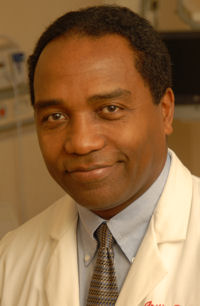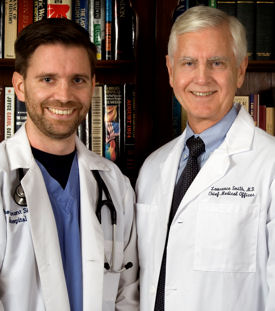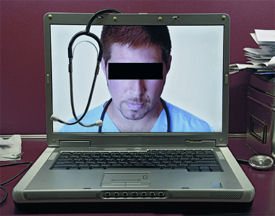ACP Master aims to make a difference in the public's health
Griffin P. Rodgers, MACP.
Griffin P. Rodgers, MACP
Occupation: Director of the National Institute of Diabetes and Digestive and Kidney Diseases (NIDDK), one of the National Institutes of Health (NIH)

Age: 52
Current residence: Kensington, Md.
Hometown: New Orleans, La.
Family: Married to Dr. Sherry Mills, with two sons, Christopher, 17, and Gregory, 13
Specialties: Board certified in internal medicine, hematology and emergency medicine
Medical school: Brown University
Residency: Barnes Hospital at Washington University in St. Louis, Mo.
Other education: MBA, focused on business of medicine, Johns Hopkins University
First job: I came to the NIH with an interest in work in red cell disorders, notably sickle-cell anemia and thalassemia. I wrote a grant to come here on fellowship. I worked in the lab of Dr. Alan Schechter within this same institute. I have essentially been here my entire academic career.
Most meaningful accomplishment: Contributions to the development of the first effective—and now FDA approved—therapy for sickle-cell anemia
Current research: I still run a lab. I still see patients. My clinical interest remains in disorders of red blood cells, notably genetic disorders of hemoglobin. My basic research interest is in the development of novel approaches for the treatment of these patients.
What makes his job great: One of the beauties of the NIH is that the people who are interested in clinical science are in close proximity and interface quite regularly with the basic scientists. Literally, the concept of bench to bedside is something that takes place here at NIH all the time.
Current challenge: In a sense, NIDDK is sort of the institute of internal medicine, I tend to joke with colleagues. We cover some of the most common, costly and consequential diseases facing America today. They include diabetes, endocrine disorders, metabolic diseases, cystic fibrosis, digestive diseases.
Making a difference: We're working to disseminate the knowledge that we gain from basic science trials to the general public—the people who are paying our salaries. It's well and good to have these findings that show in an evidence-based manner that certain treatments improve outcomes, but if people don't have that special information then we haven't completed the full step. We're really vigorously trying to get out the knowledge to various communities.
Fighting fat: We're the principal institute responsible for obesity. We want to help the general public to make healthier food choices, develop and stick with exercise programs. We are also working very closely with some of our sister agencies on childhood obesity. We are working to target messages toward kids about healthier food choices, minimizing screen time.
Future goals: I'd like to think we're going to have major breakthroughs in all [of the NIDDK's diseases]. It's like they're all my children. There are so many promising developments.
ACP involvement: Past Governor for Health and Human Services, search committees, awards committees, African-American work group. I've really enjoyed my association with ACP. I applaud ACP's focus on medical students to make sure their future is bright, and the College's congenial way of working with subspecialists.





